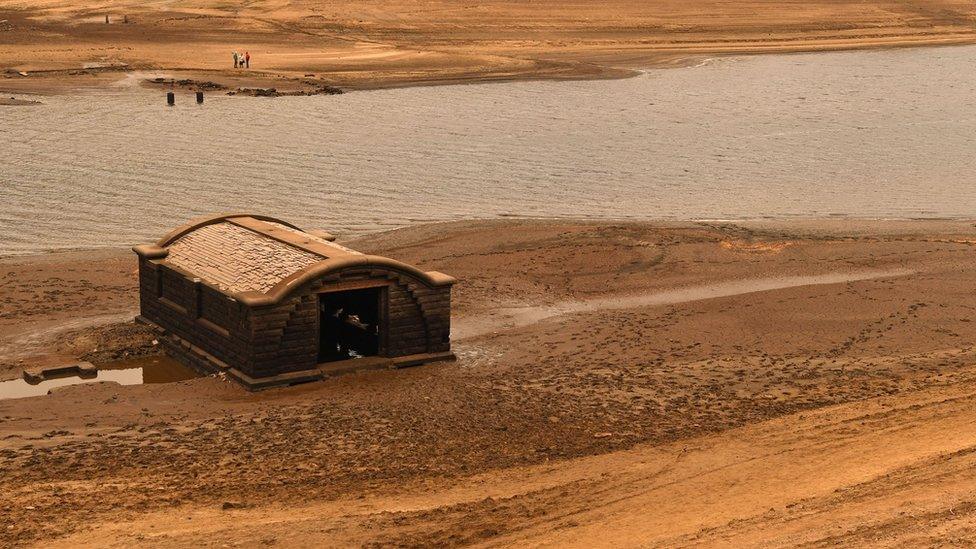Howden Reservoir at 19% of capacity amid dry spell
- Published
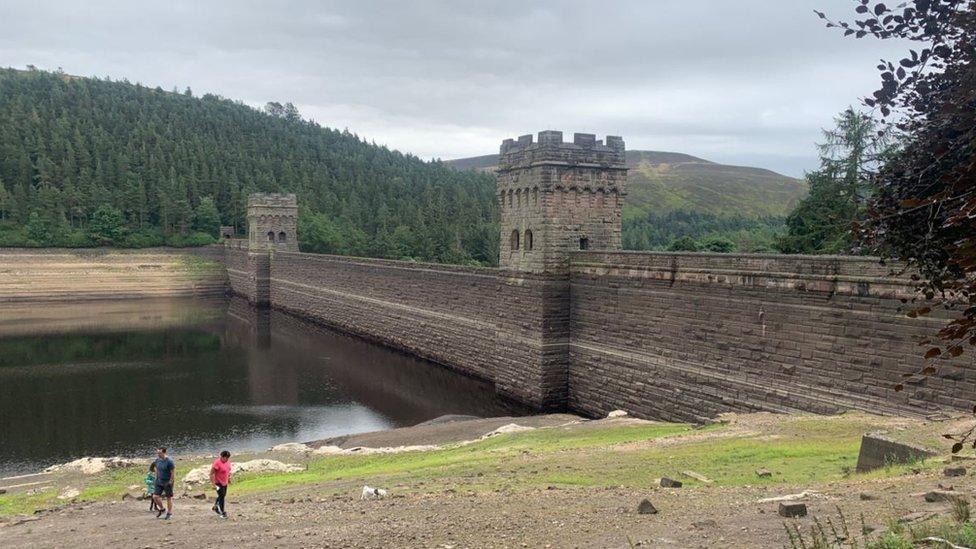
Water levels at Howden Reservoir have been hit by dry and hot weather
Water levels at a Derbyshire reservoir are less than one fifth of its capacity after a period of dry weather and increased demand, Severn Trent said.
This time last year, supplies at Howden Reservoir, in the Upper Derwent Valley, were more than twice current levels.
Severn Trent's reserves have fallen by 20% since the end of May after the area only saw 67% of the expected rainfall between April and June.
There are not currently any supply issues, the company said.
A spokesman for Severn Trent, which supplies Derbyshire, Nottinghamshire and Leicestershire, said they were currently monitoring water levels.
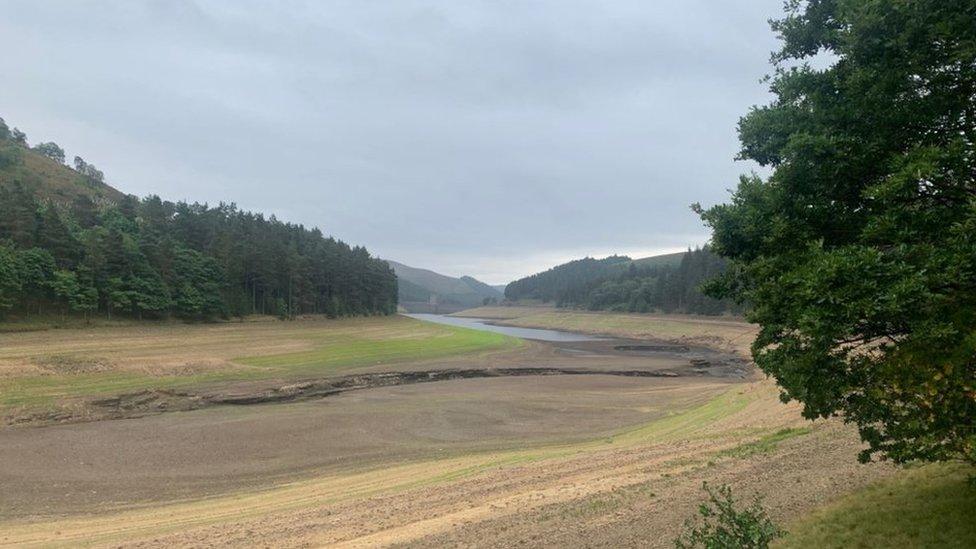
Howden Reservoir is one of 15 bodies of water run by Severn Trent
Their 15 reservoirs are collectively at 62.6% capacity.
Howden Reservoir is currently at 19.6% of its water store with Derwent and Ladybower at 37.5% and 59.1% respectively.
A Severn Trent spokesperson said: "Our region has seen a dry start to the year.
"However, there hasn't been a hosepipe ban in our region for more than 27 years, and as we do every year, we continue to monitor reservoir levels and demand for water closely."
United Utilities, who run Derbyshire's Woodhead Reservoir, said that customers should use water carefully.
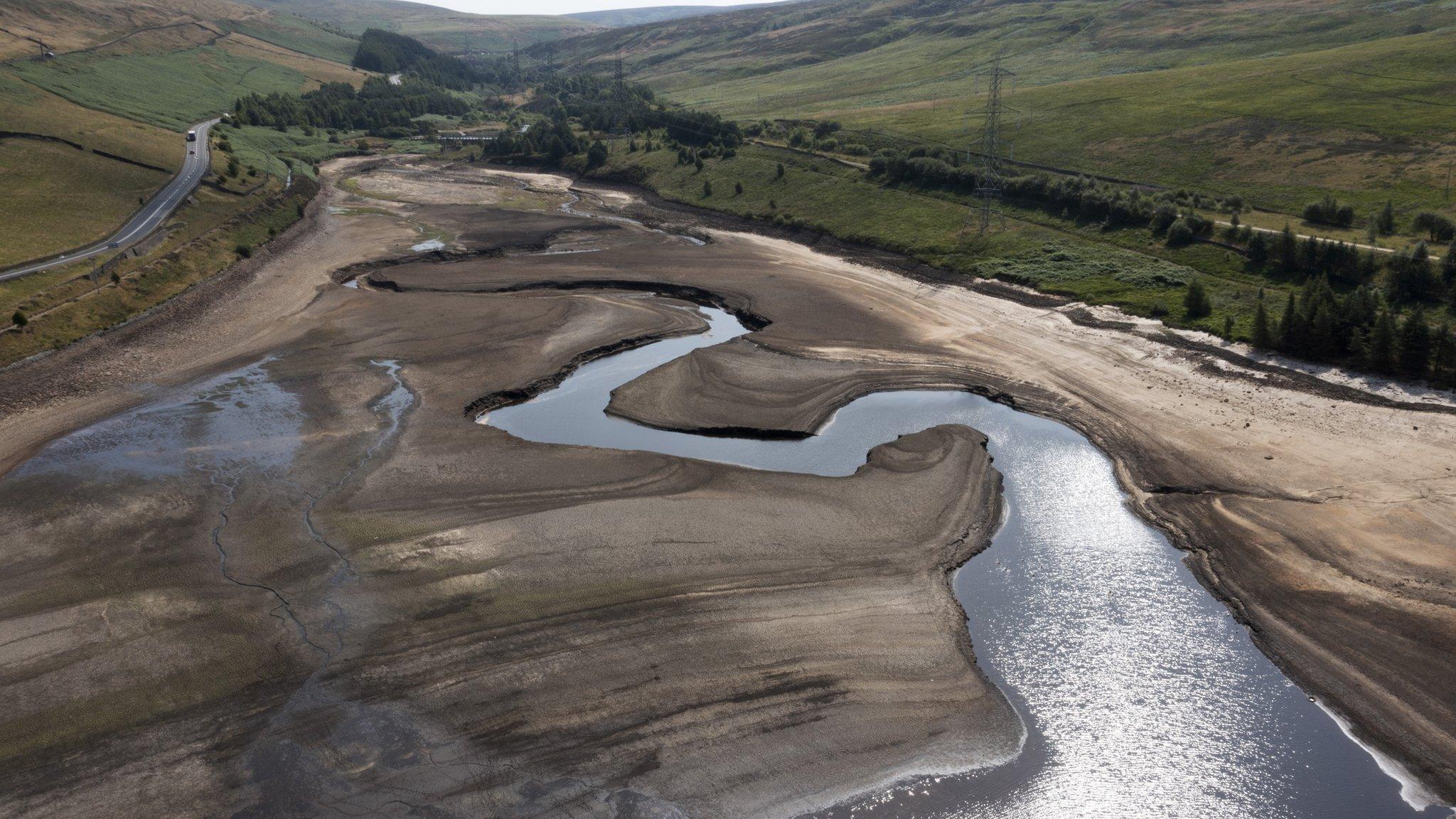
Woodhead Reservoir has also seen a fall in water levels
A spokesperson said: "Whatever the weather, we always encourage people to use water wisely, which saves energy and money and is good for the environment."
The Environment Agency has urged people to contact its incident hotline if they see wildlife such as fish in distress in reservoirs.
The UK recorded temperatures of over 40C (104F) for the first time on 19 July.
Gringley-on-the-Hill, in Nottinghamshire, hit 40.1C with Coton-in-the-Elms, in Derbyshire, reaching 38.9C on 19 July - the hottest day this year.

Follow BBC East Midlands on Facebook, external, Twitter, external, or Instagram, external. Send your story ideas to eastmidsnews@bbc.co.uk, external.
Related topics
- Published19 July 2022
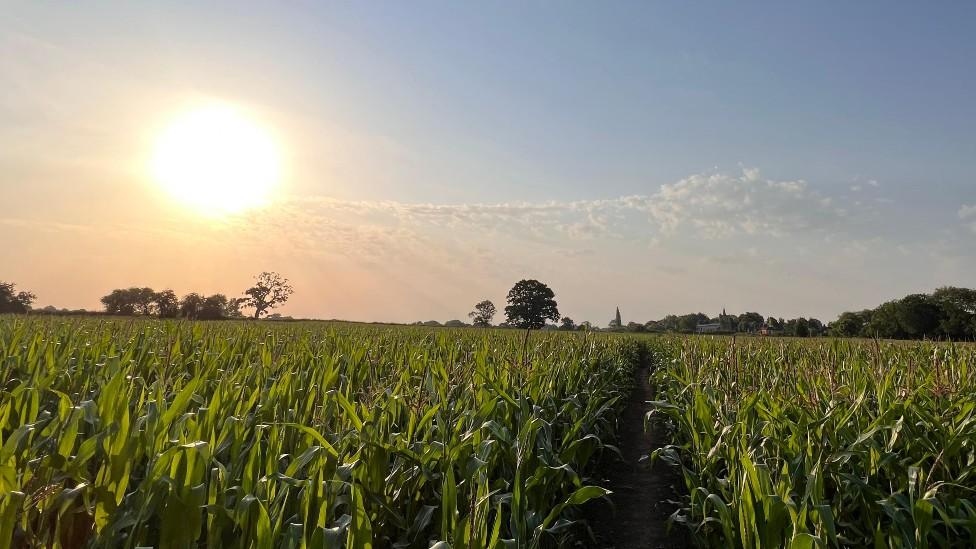
- Published20 July 2022
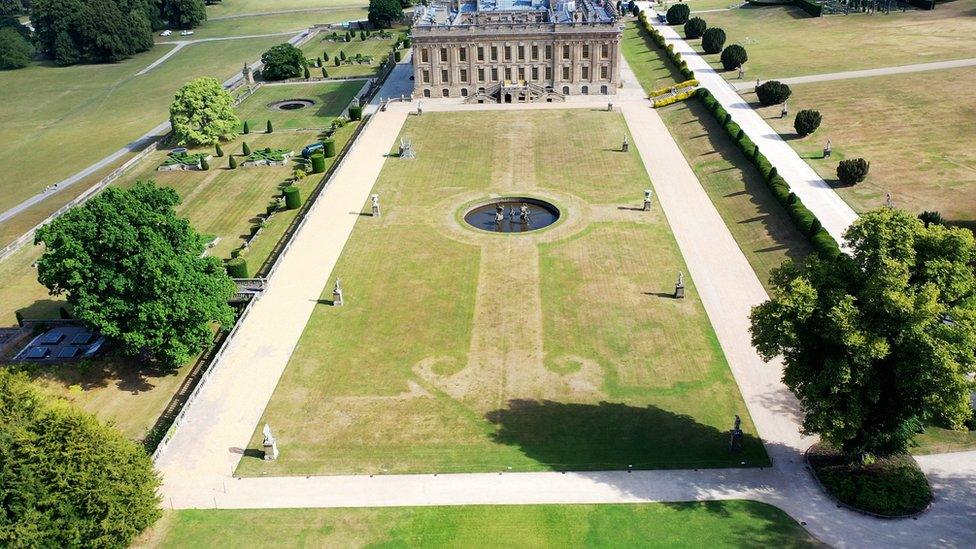
- Published20 July 2022

- Published19 July 2022

- Published25 November 2018
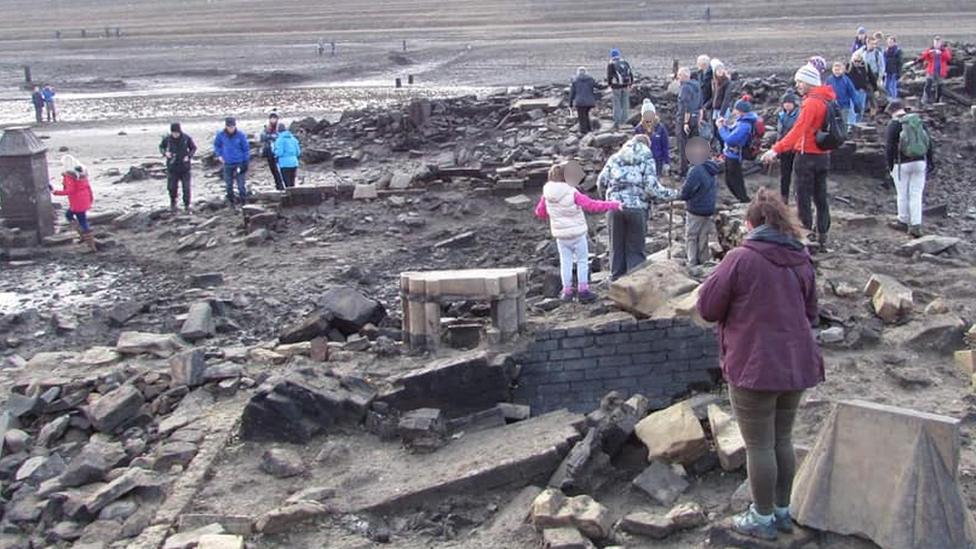
- Published17 November 2018
